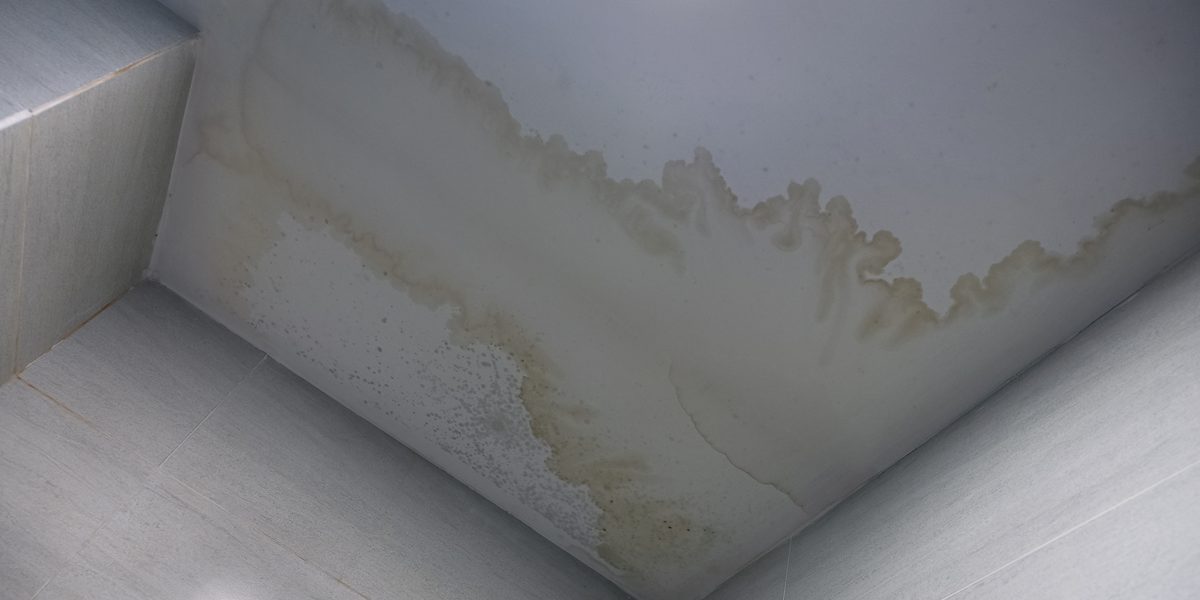All sorts of inclement weather can cause moisture to build up. These conditions include rain, hail, snow, ice and wind. Any of these conditions can create moisture in between layers of your roofing. Several different things can happen as a result of moisture and leaks. The worst case scenarios include any sort of leaking, mold or rotting. If you are searching for “roof leak detection“, G Keith Roofing and waterproofing is here to help!
Roof Leak Detection Services Near Me
Any possible roof leaking risks should be inspected as quickly as possible. Undiscovered water damage as the result of a leaking roof can lead to catastrophic consequences for your roof, ceiling and home, Unfortunately, water damage repairs can take a long time to fix and come with high costs. Preventative roof leak repairs can help you avoid water damage, wood rot, drywall damage and mold/mildew growth.
Contact G Keith Roofing and waterproofing for more information today!
Roof Leak Inspection
The worst thing a homeowner can do is wait on repairs. You do not want to scramble to find buckets to collect water during a downpour. This is a clear sign that water is leaking through your roof and further unseen damage may be taking place. Unseen damage, such as stagnant water inside the walls, can lead to the growth of mold. Water damage also weakens your home’s overall structure.
Warning Signs Of Roof Leaks
Finding the following warning signs can help prevent leaks/water damage:
Bare Spots
Shingle surfaces can wear off over time, leaving bare spots. This is where granules used to be leaving behind bare spots on your shingles, generally accompanied by granules in the gutters.
Underlayment Issues
Underlayment, which is the layer between your roof decking and top material, can become damaged over time. Any problems with the underlayment could eventually lead to leaking water entering the home.
Shingle Curling
Over time, older roof shingles will start to curl. This makes them susceptible to damage caused by ice and/or wind. Moisture from the water can build up in your attic as time goes on. Internal roof damage can occur at this point.
Broken Shingles
Broken shingles can act as an entry point for water penetration. This is especially true for roofs with lower slopes and slower water runoff times. Even if the shingles aren’t completely broken and just damaged a bit, repairs and replacements are suggested.
How To Find Roof Leaks
Follow our guide below for locating roof leaks:
Step 1. Inspect The Attic
Get yourself yourself a flashlight and go to your attic. Be careful while up there: When there isn’t proper flooring, step carefully from joist to joist. (If you happen to step between them, you might put your foot After the ceiling of the room underneath you!)
After you get oriented, use your flashlight to investigate the underside of your roof. Pay attention for any areas that are more dark than the roof’s sheathing. When it hasn’t rained recently, moist spots mighty be too difficult to distinguish. Mold, at the same time, has an inclination to linger. So, if you face a patch of mold, in which flourishes on moisture, chances are good that you’ve found the susceptible point in your roof.
Step 2. Follow Damaged Insulation To The Leak
The underside of your roof might be blocked by insulation, and that’s actually beneficial for finding the leak. Insulation breaks down more noticeably and faster than wood will. If you’re noticing damage on one section of the insulation, nevertheless, you need to remember that the leak on its own may be several feet on either side since it diverted water away from the origin of the leak.
It’s a good idea to cautiously remove all insulation neighboring the area where you noticed signs of a leak. That way, you are able follow the path of the water from the damaged spot all the way to the water’s point of entry in the roof. Don’t forget that whenever you’re working with insulation, it’s a good idea to wear the proper protective gear.
Step 3. Examine Underside Of Your Roof
Most noticeable to you are leaks generated by an object (for instance, an wayward nail) that’s managed to puncture the roof. Not seeing any such clear signs, examine the roof vents. When present, these vents are usually near ridges and/or gable ends. Over time, the seals surrounding these vents can slowly weaken, letting rainwater to seep in.
Roof Leak FAQs
These are the most commonly asked questions regarding roof leaks:
How Much Does Roof Repair Cost?
Roof repair costs an average of $750, with prices ranging from $300-$1,500 in the U.S. in 2021. The average estimate accounts for a typical roof repair to fix a leaking roof, according to Fixr. $10,000 is the highest price a roof repair project should ever reach. RoofingCalc says homeowners should expect to pay anywhere from $400-$1,000 for moderate roof repairs, while major repairs can cost upwards of $3,000.
Here is a look at typical roofing repair project costs today:
- Minimum Cost: $50
- Average Range: $300-$1,500
- Maximum Cost: $10,000
- National Average: $750
Is A Leaking Roof Covered By Insurance?
Typically, roof repairs will be covered by insurance. For instance, if strong winds cause tiles to rip off the roofing system, insurance companies will most likely cover the cost of repairs.
Is Water Damage Covered By Homeowners Insurance?
Yes, water damage is covered under homeowners insurance. However, insurance will not cover the damage is the leak is deemed “preventable” or caused by improper roof maintenance.
G Keith Roofing and waterproofing in New York
At G Keith Roofing and waterproofing, we know choosing a Roofing Contractor in the New York Area is a tough job. We are here to help make it easier! Locally owned and operated, G Keith Roofing and waterproofing has been providing roof installation and roof repairs throughout the surrounding New York areas since 1995. With each new roofing project, we strive to provide professional, timely service at a fair price. Contact G Keith Roofing and waterproofing right here!







